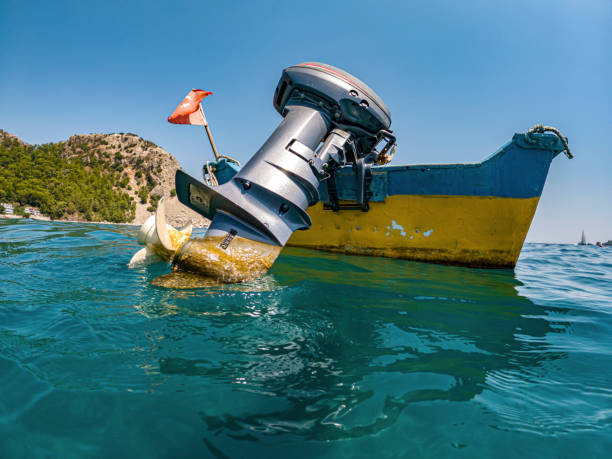In a world increasingly conscious of environmental sustainability, the maritime industry is setting sail towards cleaner and more efficient modes of transportation. Boat electric services have emerged as a pioneering solution, offering a range of benefits that extend beyond just reduced emissions. This article delves into the transformative power of boat electric services, examining the environmental, economic, and operational advantages that come with embracing clean energy on the high seas.
The Environmental Imperative
The maritime industry, responsible for a significant share of global carbon emissions, has faced growing pressure to transition towards more sustainable practices. Boat electric services represent a crucial step in this direction. By replacing traditional fossil fuel-powered engines with electric propulsion systems, boats can substantially decrease their carbon footprint. This shift is especially impactful in reducing air and water pollution and helping preserve the delicate ecosystems of our oceans.
Since electric propulsion systems emit no direct emissions, the release of dangerous pollutants such as particulate matter, nitrogen oxides, and sulfur oxides is reduced. This is advantageous for the marine ecosystem as well as for improving the general quality of the air in coastal and other places. Boat electric services give the marine sector a practical way to support international efforts to stop environmental deterioration as worries about climate change grow.
Economic Efficiency
While the initial investment in electric propulsion systems may seem substantial, the long-term economic benefits often outweigh the upfront costs. Savings on operating costs is one of the main benefits. Because electric engines are by nature more energy-efficient than their conventional counterparts, they require less maintenance and use less fuel.
Furthermore, the operational expenses of conventional boats can be greatly impacted by the volatile prices of fossil fuels. Conversely, operators of electric boats benefit from increased cost predictability because these market changes are less likely to affect them. Electric propulsion systems are predicted to become more affordable as production increases and technology develops, offering boat owners and operators a more alluring and financially sound choice.
Operational Advantages
Beyond environmental and economic considerations, boat electric services offer distinct operational advantages. The immediate torque delivery of electric motors provides quick acceleration, enhancing the overall performance of electric-powered boats. This not only improves maneuverability but also contributes to increased safety on the water.
Additionally, electric propulsion systems are known for their quiet operation. The reduction in noise pollution is not only appreciated by those on board but also has positive implications for marine life. Reduced noise levels can mitigate the negative impact on underwater ecosystems, preserving the natural habitats of marine species and supporting biodiversity.
The simplicity of electric propulsion systems translates into fewer moving parts, leading to reduced maintenance needs and downtime. This results in increased operational efficiency, as boats can spend more time on the water and less time in the shipyard for repairs and maintenance.
Technological Innovation in Boat Electric Services
The field of boat electric services is witnessing rapid technological innovation. Particularly, advancements in battery technology have played a significant role in the broad use of electric propulsion systems. Due to their extended lifespan and high energy density, lithium-ion batteries are now the go-to option for marine applications.
Marine applications are also making use of regenerative braking systems, which are frequently found in electric cars. These systems capture and store energy during deceleration or when sailing downhill, replenishing the onboard batteries. This technology further improves the efficiency of electric boats and extends their range, addressing one of the initial concerns regarding the limited distance electric vessels could cover.
Case Studies: Pioneering the Transition
Several maritime operators and manufacturers have already embraced boat electric services, serving as pioneers in the industry’s transition to cleaner energy. One notable example is the passenger ferry sector. Electric ferries, such as the ones operating in Scandinavia, have proven the viability of electric propulsion for daily, high-frequency use. These vessels not only reduce emissions but also showcase the reliability and performance of electric propulsion systems.
In the yacht and recreational boating sector, electric boats have gained popularity among environmentally conscious enthusiasts. Manufacturers are introducing electric models with impressive ranges and charging capabilities, catering to the demands of modern boaters seeking both luxury and sustainability.
Overcoming Challenges
While the benefits of boat electric services are evident, challenges remain. One of the primary concerns is the limited infrastructure for charging and refueling electric boats. Establishing a robust network of charging stations, especially in remote or less developed maritime regions, is crucial for the widespread adoption of electric propulsion systems.
Battery technology also needs further improvement to enhance energy density and reduce charging times. Continued research and development in this area are essential to address range limitations and make electric boats more competitive with their traditional counterparts, particularly for long-haul and commercial applications.
The Future of Boat Electric Services
As technology continues to evolve and awareness of environmental issues grows, the future of boat electric services looks promising. Cleaner technology adoption is being encouraged by governments and regulatory agencies through grants, subsidies, and emissions controls. This backing, along with continuous developments in energy storage and electric propulsion, is pushing the maritime sector toward a more environmentally responsible and sustainable future.
The move to boat electric services is more than simply a fad; it signifies a critical change in the maritime industry toward responsible and progressive methods. As more boat owners and operators recognize the benefits of clean energy on the high seas, the adoption of electric propulsion systems is expected to accelerate, reshaping the industry and leaving a positive legacy for future generations of seafarers.


